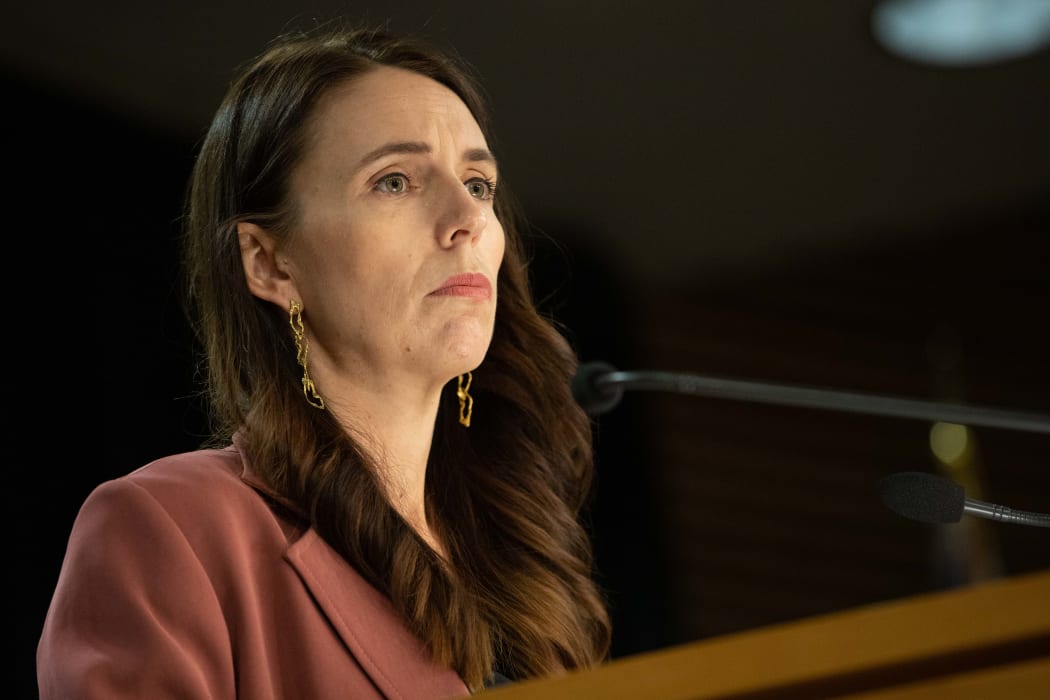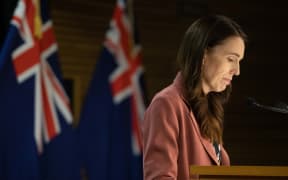The prime minister is flagging a law allowing New Zealand to bring more sanctions to bear against Russia, which could be passed as early as next week.

Jacinda Ardern speaks to media following Russia's invasion of Ukraine Photo: RNZ / Angus Dreaver
Targeted export and travel bans are already in place, in response to Russia's invasion of Ukraine.
Officials had been asked to canvas what further actions were possible under the existing regime.
However, Jacinda Ardern says it is now clear a law change is needed.
"A targeted legislative response that will give us a wider range of powers to apply sanctions to Russia ... fit for purpose for this situation," she told reporters.
Using the Overseas Investment Act was considered but she said while that could provide "some levers", it would "tend to be case by case" and a targeted law change would be a "much more comprehensive response".
Shortly afterwards, she addressed Parliament, saying New Zealand had not "yet reached the extent of the measures [it] would take to condemn this act".
"We are pursuing new measures to target Russian investment, including measures to target financial institutions in New Zealand, including separate, but Russian targeted, specific legislation."
New Zealand continued to "engage with international partners over the collective action we can all take," Ardern told the House, "but it is clear that there will be a significant cost imposed on Russia for their actions".
The government would move as quickly as possible, including discussions with other political parties, she said.
RNZ understands the legislation would allow Russian individuals to be targeted, using, for example, names on travel ban lists.
Meanwhile, Minister of Immigration Kris Faafoi is promising applications from Ukrainians wanting to come to New Zealand and those already here on temporary visas will be prioritised by immigration officials.
As of late last week there were about 170 applications, Faafoi said.
"We expect that to increase, but those who are here in New Zealand at the moment can speak to Immigration to extend visas," he said.
A special humanitarian visa - as proposed by National - was not necessary, Faafoi said.
There was enough room within New Zealand's existing refugee quota of 1500 to respond to any potential requests from UNHCR, he said.
The Green Party wanted the government to raise the quota to 2000 to accommodate fleeing Ukrainians.
However, Faafoi said New Zealand had already doubled the quota in recent years.
Refugee services were also supporting those who arrived from Afghanistan last year.
"It is not just about places, it is about the support we can offer people, the likes of housing and wraparound services," he said.
However, he emphasised the situation in Ukraine was still developing and the government had not yet been approached by the United Nations High Commissioner for Refugees (UNHCR).




